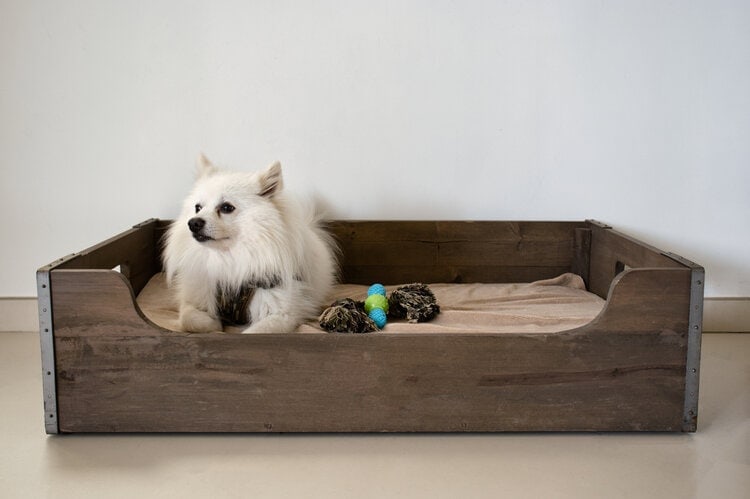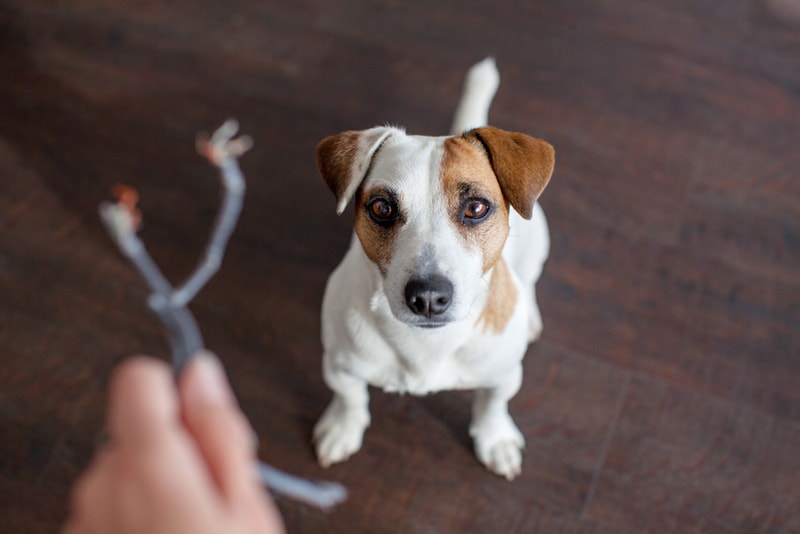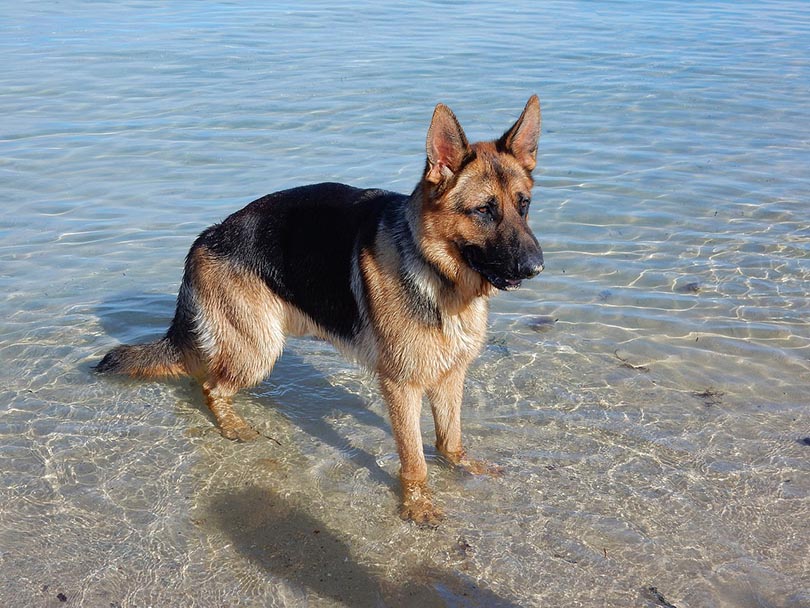Can Dogs Eat Potato Skins? Vet-Reviewed Facts & Safety Guide

Updated on
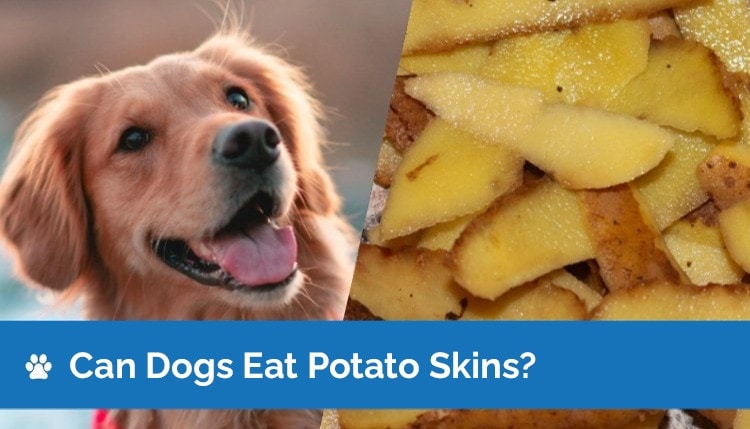
Just like people, dogs can eat cooked, ripe potato skins. Once cooked, they are not poisonous, and a little bit will not likely cause a significant adverse reaction in your canine. In general, you should not be worried in the least if your dog swiped some potato skins from the counter.
However, that does not mean you should feed your dog all your potato scraps. While your dog isn’t going to be harmed from eating a little bit, they should not make up the bulk of your dog’s diet or even be used as treats. This is largely because of their macronutrient content.
The Nutritional Content of Potato Skins
As you might guess, potatoes are mostly made out of carbohydrates. They contain quite a lot of carbohydrates, as they are starchy veggies. This is fine for humans. However, it is not necessarily the best for our furry friends.
Dogs have evolved to digest grains and starches due to their close contact with people. But they still require a high amount of protein and a small amount of fat to thrive. Studies1 have shown that dogs choose a diet high in fat and protein when given complete control of their diet. Usually, animals are very good at choosing a diet that helps them thrive, so we can safely assume that this shows their perfect diet.
The problem is that potatoes are not high in fat or protein. Instead, they are almost entirely carbohydrates. This does not match what our dogs need to thrive, which is why potatoes should not make up a large portion of their diet.
Potato skins do contain a few vitamins and minerals. However, all of these nutrients can be found in other foods that aren’t so high in carbs. For example, potato skins contain a surprising amount of iron, but meat will always be a better source.
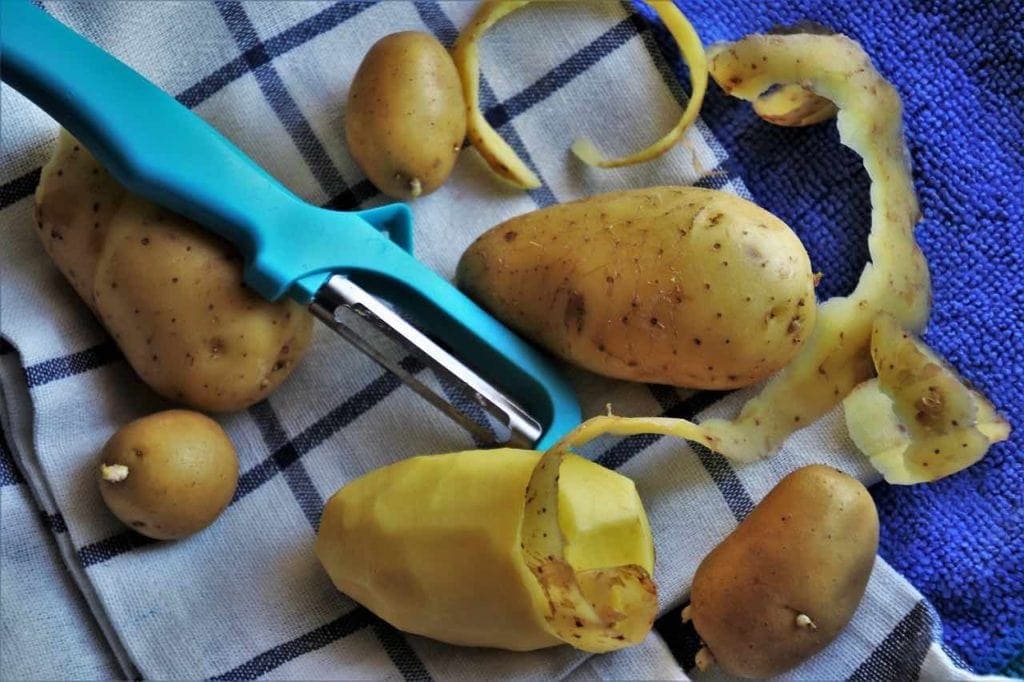
Potatoes and Dilated Cardiomyopathy
While a few potato skins will not hurt your puppy, there is some evidence that potatoes can cause serious problems when eaten in large amounts.
The FDA is currently investigating a potential link between certain dog foods and canine dilated cardiomyopathy, a deadly heart condition. While the investigation is still underway, the preliminary findings show that dog foods containing high amounts of potatoes, peas, and lentils are more likely to cause these heart conditions.
This is likely related to taurine, which is a nutrient required for your dog’s heart health. There are several theories and a bit of speculation that something in potatoes, peas, and lentils may affect the body’s ability to use taurine, but nothing is known for sure yet. In the meantime, we recommend limiting the potatoes your dog eats. It’s not a big deal if they eat a few scraps off the floor, but you probably shouldn’t serve them a bowl of potato skins every day.

Can Dogs Eat Raw Potato Skins?
Once again, one raw potato skin is not going to hurt your dog. However, raw potatoes contain solanine, which is a poison. Potato skins do not contain very much, though, so your dog will likely be fine unless they eat a lot. Solaine is the same poison that is found in nightshade plants, which potatoes are related to.
The solanine is only found in the green parts of the plant. So, if a potato skin has some green on the underside, it likely contains higher concentrations of solanine. That said, since not all potatoes are the same, the amount of solanine that a peel contains will vary, depending on many factors.
You do not need to rush your dog to the vet over potential solanine poisoning if they eat just a bit of ripe, raw potato. If the skin was green, however, you should keep a close eye on them for signs of gastrointestinal distress, including salivation, vomiting, diarrhea, abdominal pain, and bloody stool, which can present up to 12 or more hours after ingestion. If this happens, you should take the dog to the vet for supportive care, but you should know that their prognosis is excellent.
Basically, you should cook any potato skins you’re planning on feeding your puppy.
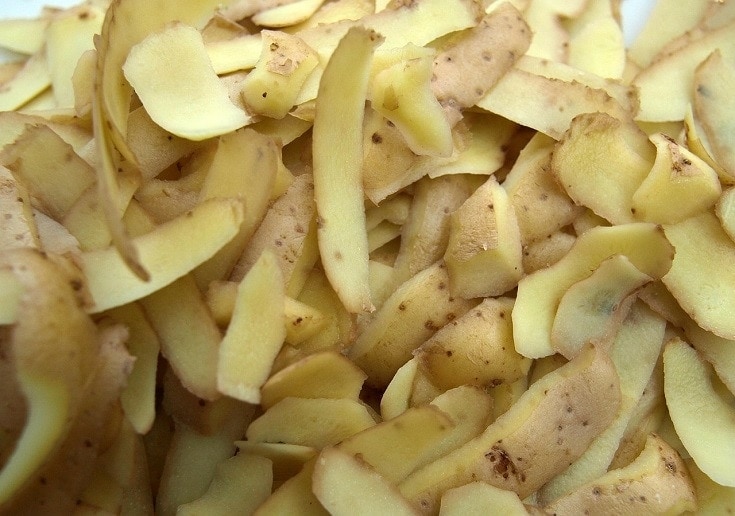
Be Careful With Seasonings
While cooked potato skins are not harmful by themselves, they may be seasoned with ingredients that are not good for our canines. For example, you need to be careful with things like onions and garlic, as both can be poisonous to dogs.
You should also watch the salt, especially if your dog is smaller. What is a bit of salt for us can be a lot of salt for small dogs. This can throw off their sodium intake and can cause health problems in the long term.
Can Dogs Eat Potato Skins?
If your dog pulled some potato skins off the counter, don’t worry about it. A little bit is not going to hurt them, even if they are raw. You may want to watch your canine for intestinal discomfort, though, and you should be aware of signs like vomit, diarrhea, abdominal pain, inappetence, and even blood in their stool, which might present up to 12 or more hours after consumption. However, there is usually no reason to rush them to the vet unless they ate a large amount. If your dog is intoxicated and vet intervention is needed, you should know that their prognosis for solanine intoxication is usually favorable.
With that said, we don’t recommend feeding your dog potato skins. They do not fit into a dog’s preferred diet and may cause problems when eaten in bulk. You should not feed your dog potatoesas a major part of their regular diet.
Related Reads:
Featured Image Credit: kalhh, Pixabay



